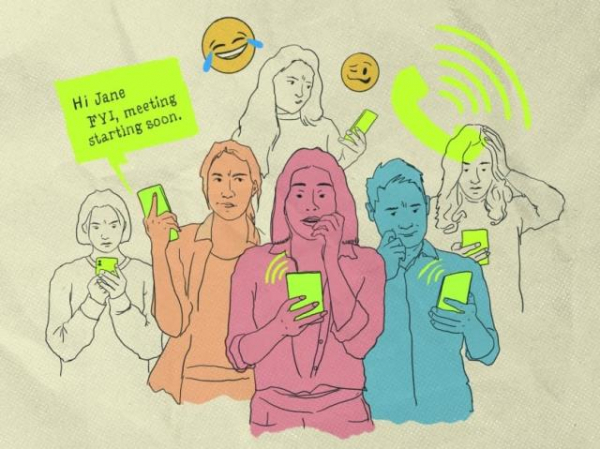The Big Read: Dialing In on Communication Trends — Gen Zers and Millennials Embrace Texting Over Calls. What's the Buzz?

SINGAPORE — For 26-year-old Nivani Elangovan, gearing up for a phone call is no simple task. Prior to dialing, she meticulously plans out potential scenarios, scribbling down key points on post-it notes as a reference. Even the act of punching in a phone number induces anxiety, let alone engaging in conversation. "I hate phone calls... because I’m a lot more anxious about things that are uncertain. I like having structure and being as prepared as I can," she confided to TODAY during a recent phone interview.
Preferring the clarity and composure of written communication, Elangovan finds solace in emails and text messages. "Over email or text messages, at least it's in writing and I have time to think about how to reply and what I want to say. When over the phone, there’s so much uncertainty about what could play out," she explained. To mitigate her unease, she resorts to her trusty post-it notes, meticulously listing down discussion points to ensure she doesn't falter during the call.
The apprehension towards phone conversations is not exclusive to Elangovan. Many digital natives, raised in the age of computers and the internet, grapple with similar anxieties. In Australia, a survey conducted last year on over 1,000 Gen Zers aged 18 to 26 revealed that only one in 10 preferred communicating with family and friends via phone calls. Nearly half admitted to feeling anxious when speaking over the phone, with six in 10 dreading both making and receiving calls.
Similarly, a survey by European telecommunications provider Sky Mobile highlighted that a quarter of youths aged 18 to 24 actively ignored incoming calls, while over half confessed to disregarding their parents' attempts to reach them. These trends underscore a significant shift in communication preferences, with asynchronous forms of messaging gaining precedence over traditional voice calls.
The inclination towards texting among Gen Z isn't a recent trend; millennials, aged between 27 and 42, have been embracing this mode of communication since as early as 2009, as highlighted by sociologists speaking to TODAY. Shedding light on this shift, a survey conducted by the Washington-based Pew Research Centre in 2012 revealed that the average American teen, aged 12 to 17, exchanged 60 text messages in 2011, a notable increase from 50 messages in 2009. Concurrently, the survey unveiled a decline in voice calls among teens, with only 26 percent resorting to phone calls to connect with friends in 2011, down from 38 percent in 2009.
In conclusion, the prevailing preference for texting over traditional phone calls among both Gen Z and millennials underscores a significant shift in communication habits, deeply rooted in the digital landscape of the 21st century. The evolution towards asynchronous forms of messaging reflects not only a desire for clarity and control in interpersonal interactions but also a broader societal adaptation to the conveniences afforded by technology. As this trend continues to shape how individuals connect and communicate, it prompts us to reconsider the dynamics of human interaction in an increasingly digital age, where the written word often takes precedence over verbal conversation.


